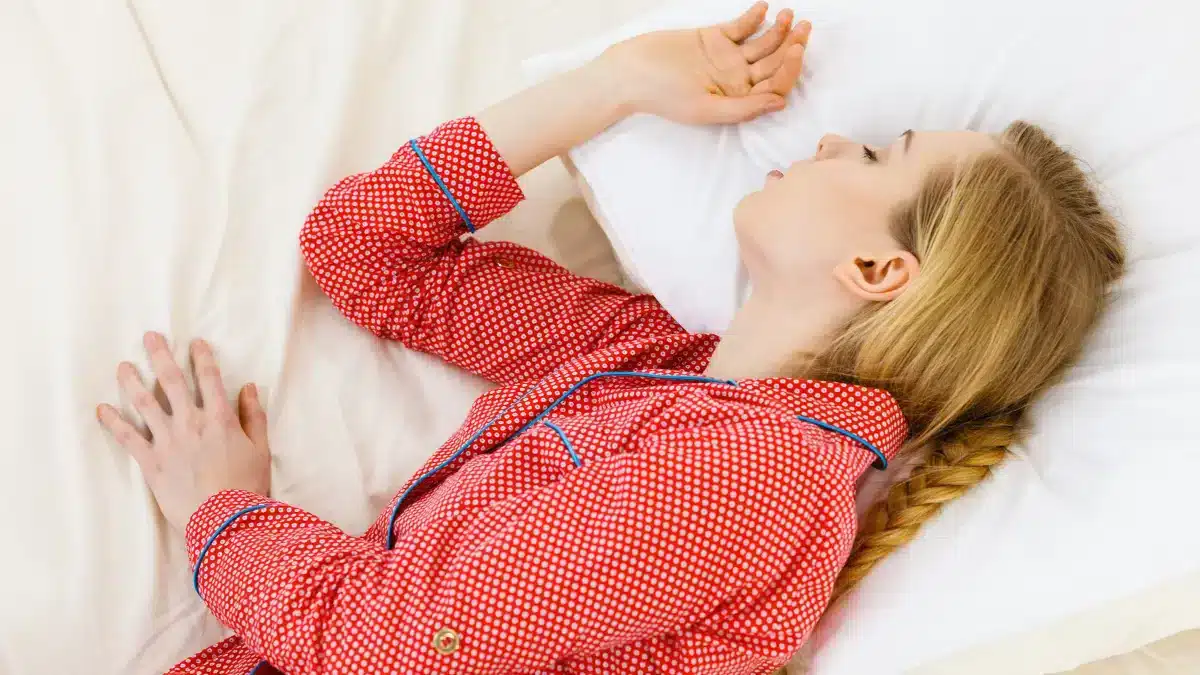Can Sleeping on One Side Cause Hair Thinning?
Hair thinning is a common concern many people face, and it’s natural to wonder if our daily habits could contribute to the problem.
These could range from brushing or washing your hair too aggressively or using harsh chemicals or heat on your hair too often.
While various factors influence hair loss, we will primarily focus on the impact of sleeping positions on hair health.
We will delve into the question, “Can sleeping on one side cause hair thinning?” and explore the potential factors that may lead cause thinning of hair.
Does sleeping sideways affect your hair
The short answer is that there is no direct evidence to suggest that sleeping on one side can cause hair thinning.
However, if you sleep on one side every day for long hours, it might cause suppression of blood circulation and weaken your hair follicles.
Hair thinning and hair loss are primarily driven by genetic factors, hormonal imbalances, and other medical conditions.
Your hair follicles have a growth and shedding pattern, which is not influenced by your sleeping position.
While some newborns may experience hair rubbing off due to their extremely fine hair and extended periods of lying on one side, adult hair is different.
It is not prone to the same issues.
Hair follicles are not typically affected by the direction in which you sleep; they won’t be deprived of blood flow or essential nutrients due to your sleeping habits.
Causes of hair thinning

The probable reason that you are noticing thinning hair on one side could be:
Genetic factors
Heredity is one of the major causes of hair loss.
It can be passed down from either side of the family, affecting both men and women.
Androgenetic Alopecia, also called Male Pattern Baldness, is a very common condition influenced by genetics, age, and hormones.
Medical conditions and medications
Hair thinning can be a symptom of underlying medical conditions such as Alopecia Areata, Scarring Alopecia, or Telogen Effluvium.
Stress could be another factor contributing to hair shedding.
In some cases, sudden hair loss could also be a side effect of some medication you might be consuming.
Consult with a healthcare professional in such a case to know what could be causing your hair to shed.
Hairstyles and hair care
Certain hairstyles, particularly those that put excessive tension on the hair follicles, can cause hair breakage and thinning.
Additionally, using harsh hair care products or subjecting your hair to frequent heat styling can contribute to hair damage.
Addressing one-sided hair thinning

To address one-sided hair thinning effectively, it is crucial to identify the underlying cause and treat it.
Medications such as Minoxidil can help treat hair loss.
It is available as a topical medication which makes it convenient to apply to the affected area for maximum results.
If you notice more hair thinning on one side, try sleeping on your back or alternating between sides to reduce tension and friction on your hair.
Additionally, use silk or satin pillowcases to minimize hair damage during sleep that can be caused if you use a cotton pillowcase.
Regular scalp massages and steam treatments can promote blood flow to the scalp, supporting healthier hair growth.
Also, be mindful of styling practices that exert excessive tension on one side of the head.
Change your hair part occasionally and opt for low-tension hairstyles to minimize stress on your hair.
Regular exercise and a nutritious diet might be helpful in treating hormonal imbalances or nutritional deficiencies that may contribute to hair thinning.
Always consult a professional to understand if a medical condition is causing your hair to fall and seek treatment accordingly.
If necessary, consider medical-grade wigs designed to address hair loss issues, providing comfort and ventilation for the affected areas.
Takeaway
While hair thinning can be a distressing experience, sleeping on one side is unlikely to be a direct cause.
Hair thinning is mainly influenced by genetic factors, medical conditions, and hair care practices.
Maintaining a healthy lifestyle, including exercise, a nutritious diet, and gentle hair care practices, can contribute to overall hair health.
You can also consider medications and better styling practices to reduce thinning of hair.
However, if you notice significant hair thinning or hair loss, it is essential to consult a qualified healthcare professional or a trichologist for a thorough evaluation and personalized treatment plan.
Frequently Asked Questions
Why is my hair thinning more on one side?
Hair may thin more on one side due to external factors like tight hairstyles or sleeping positions that cause tension and friction. It can also result from underlying medical conditions or genetic predisposition.
Does sleeping sideways affect your hair?
Sleeping sideways does not directly impact your hair follicles. However, sleeping on cotton pillowcases can potentially affect hair by causing friction and tension on one side, leading to hair breakage and thinning. Using silk or satin pillowcases may reduce hair damage during sleep.
How should I sleep with my thinning hair?
For thinning hair, try sleeping on your back or alternating sides to minimize pressure on one area. Using gentle hairstyles and avoiding tight braids or clips can also help protect your hair. If required, you can also apply Minoxidil to the affected areas for hair growth.
Does sleep affect hair thinning?
Sleep does not directly affect hair thinning. However, factors like stress and hormonal changes can cause hair to thin out. A consistent sleep routine and stress management may promote overall hair health.
WowRx uses only high-quality sources while writing our articles. Please read our content information policy to know more about how we keep our content reliable and trustworthy.






